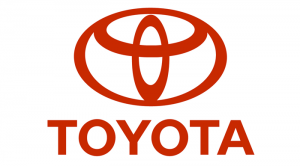The playing field in the collision repair industry is changing, and the original equipment manufacturers (OEMs) have moved from the sidelines to center field. If you want to be a winning coach and an excellent repair provider, you need the strongest offensive and defensive weapons working for you. That’s where OEM certifications come in.
An Evolution
With three CARSTAR locations in Sidney, Troy and Piqua, Ohio, I’ve watched how we repair vehicles evolve. I want to be on the forefront of delivering the highest-quality repairs, so I’m always looking at training and certification programs that help our team be their best. OEM certifications are a part of that game plan today.
My opinion of OEM certifications is that they’re a good thing. They provide access to the way that each manufacturer wants their vehicle repaired. After all, the OEMs are the engineers and the best resource of information for their vehicles. Another advantage of having OEM certifications is that it lets your customers, insurance companies and the OEMs know you have the training and equipment needed to repair their brand of vehicle per their standards.
Developing a Game Plan
The first step in getting your OEM certifications is conducting an assessment of your facility, your team’s training and the vehicles in your market. We focused our resources on identifying the right OEM certifications we needed, then mapped out how we were going to constantly improve our processes and performance to earn them.
As a starting point, we evaluated the vehicles in our city and what we repair most frequently. As each OEM certification program requires an investment and specific brands of equipment, you want to make sure your efforts go toward a brand of vehicle you repair often to help justify the cost and earn a return on your investment.
You have to look at it like you’re investing in the future of your business. I think that, in the future, all OEMs will want certified shops to repair their brand of vehicles. This helps ensure the repair is done properly and keeps the customer happy and loyal to the OEM’s brand.
As it stands today, we’re Honda/Acura ProFirst certified and working on our Ford and GM certifications. These certifications have made it easier to get the information on how to repair the vehicle properly.
Insurer Negotiations
Another benefit of OEM certifications is that they provide a documented repair plan and required parts and procedures. When you provide this to an insurer, it can eliminate any gray areas on repair standards and what will and won’t be covered. Sometimes you have to use your negotiation skills, but the OEM repair standards are very clear about what is expected in the repair.
We’re fortunate that our insurance partners are like us and just want to do what is right for our shared customer. At the end of the day, our customers are trusting us to repair ther vehicles properly, and that’s what we’re going to do every time.
Summary
If you’re considering OEM certifications for your collision repair facility, take a good look at your playing field, what your competitors are doing in your market and how OEM certifications can make you the winning team. It’s the best game plan for succeeding in the collision repair industry today – and tomorrow.














